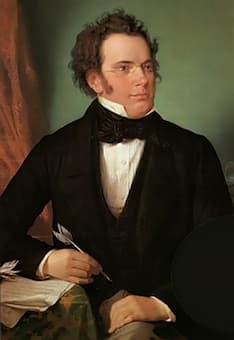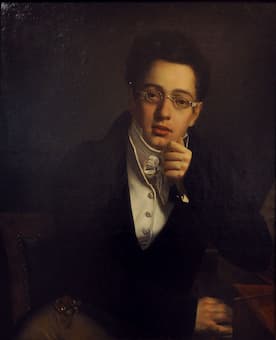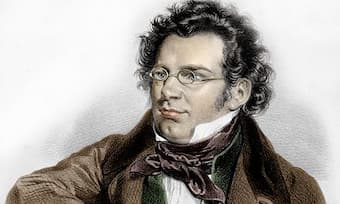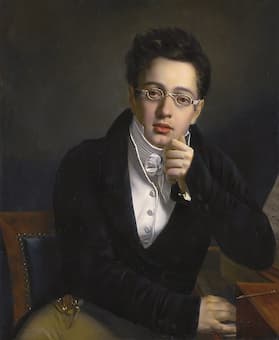During the first decades of the 19th Century, the city of Vienna must have been a real party town. Conductors, performers and composers from all parts of Europe flocked to the city to take advantage of the rapidly expanding employment
Schubert
Franz Schubert’s young life was spent at the imperial-royal municipal seminary as a choir boy, and thought he’d been sent to prison – the day was a cycle of obligatory mass attendance, hours of daily prayer, weekly confession, all in
In 1774 the poet Matthias Claudius (1740-1815) published a short poem titled “Death and the Maiden.” The poem is designed as a dialogue, contrasting a young woman’s fear with the reassurance of death. Claudius creates opposites and connections between the
Schubert’s final symphony, his ninth, was called the Great C major to distinguish it from his earlier Symphony No. 6 in C major (called the Little C major). Now, the word Great refers to the work’s majesty. It is the
Franz Schubert was born in the early afternoon of 31 January 1797 in a one-room apartment in a house called “The Red Crab”, then located in the district of the “Himmelpfortgrund,” an area northwest of the bustling and overcrowded center
Following my article about Schubert’s Drei Klavierstucke, here is another piano work which I feel is unfairly overlooked and rarely performed, perhaps simply because of its brevity and apparent simplicity. Yet Schubert packs an expressive punch and offers the pianist
Impromptus in all but name, the three “piano pieces” D946, were completed in May 1828, the year Schubert died, and follow the far more well-known and popular Impromptus D899 and D935, which Schubert composed the previous year. Like the Impromptus,
During his short but highly productive career Franz Schubert worked on a total of thirteen symphonies. Three symphonic projects were abandoned in fragments, and three more left incomplete. The Symphony No. 7 in E major was fully sketched and fully








